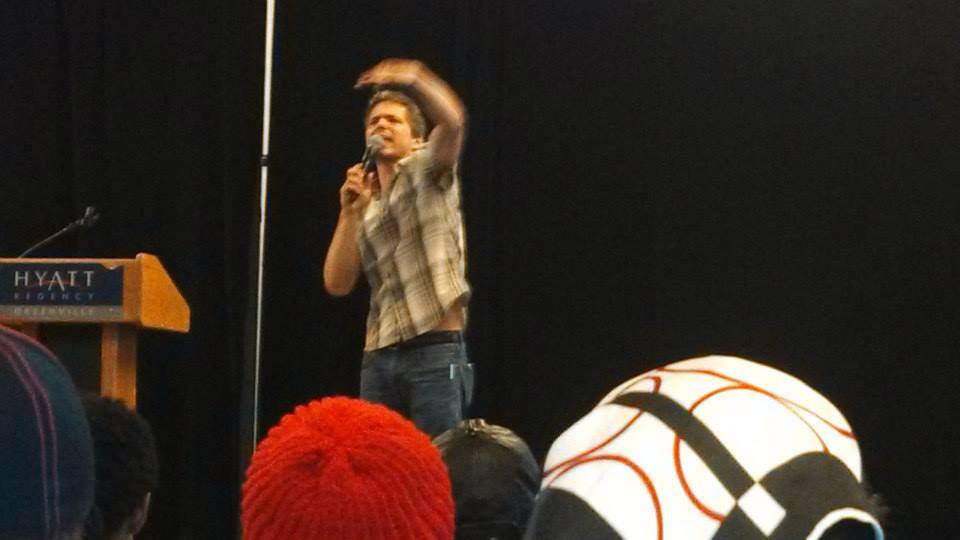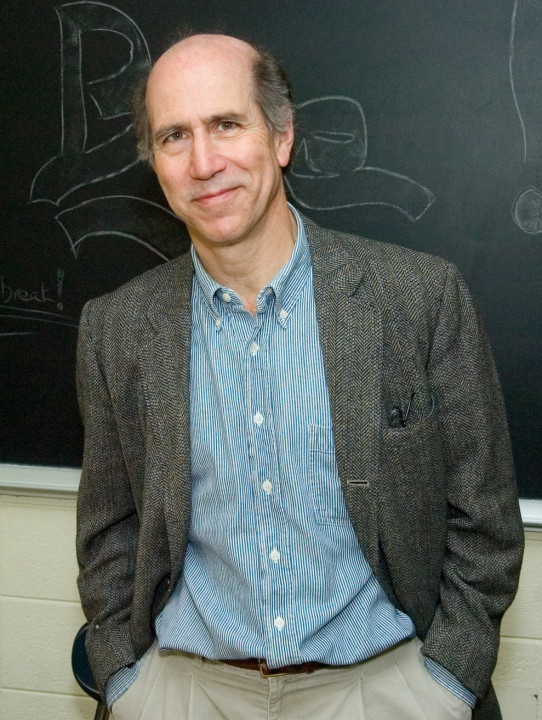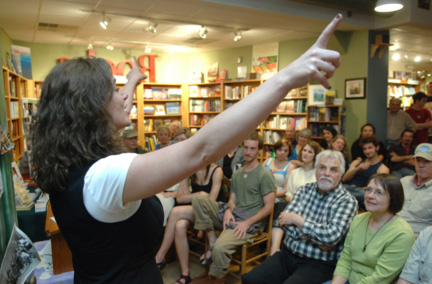Poetry has long been an action-packed artistic genre in Western North Carolina. Here, it’s not merely written but spoken, slammed and taken into schools (thanks to Poetry Alive! — which celebrates its 30th anniversary with an event at The White Horse on Aug. 15 — and LEAF in Schools & Streets, among other initiatives).
In WNC, poetry is the stuff of serious study, but it’s also available at parties and on the street (thanks to “Poet for Hire” performance artists). But North Carolina poets have been in a particularly bright spotlight recently, due to what some are calling “Poet Gate.”
Valerie Macon, a disability examiner for the state of North Carolina and a self-published writer, was named Poet Laureate by Governor Pat McCrory on Friday, July 11. Less than a week later, Macon resigned, saying that “she didn’t want the negative attention her appointment has raised to distract from that prominent post.” Following Macon’s resignation, Susan Kluttz, Secretary of the North Carolina Department of Cultural Resources, said, “I met with Valerie Macon and was very impressed with her passion to use her talent to combat homelessness.” Kluttz added that she felt McCrory had been unfairly targeted and that the governor is incredibly supportive of this department and the arts.”
The six days between Macon’s appointment and resignation brought a flurry of confused and sometimes outraged comments from North Carolina’s poetry community. The upset stemmed somewhat from Macon’s limited output (just two collections) and self-published status, but more from McCrory’s decision to make his selection without input from a panel of writers.
“Poet laureate is a coveted position in North Carolina’s literary world. Fred Chappell and Sam Ragan are among the nationally known previous laureates, while outgoing Laureate Joseph Bathanti has published a dozen books and won major awards, including the Carolina Novel Award and the Sam Ragan Fine Arts Award,” wrote the News & Observer. “Given the stature of the poet laureate position, the thinness of the largely unknown Macon’s poetry output and the fact that Gov. Pat McCrory made his selection with no input from the North Carolina Arts Council — which oversaw nominating and vetting in previous years — North Carolina’s poetry community reacted to her appointment with swift vehemence.”
The news outlet added that WNC-based Kathryn Stripling Byer, “who was poet laureate from 2005 to 2009, called McCrory’s handling of it ‘a slap in the face’ even as she pledged to help Macon with her new position.”
An historical note: The first poet laureate of the state was appointed in 1948; in 1997, with the appointment of Fred Chappell, the term of office was changed from life to two years, and a poet laureate can be reappointed at the discretion of the governor. While still able to pursue their own work, poets laureate are also required to participate in literary activities state-wide. For the role, they receive a stipend raging from $5,000-$15,000, split over the two-year term.
Arthur Talmage Abernathy, the first poet laureate of N.C., had never published poetry in book form at the time of his appointment. He, James Larkin Pearson, Chappell, Byer, Cathy Smith Bowers and Bathanti — six out of eight N.C. poets laureate — all have ties to WNC.
Many locals used Facebook posts and links to comment on Macon’s appointment and discuss what it meant for the perception and future of poetry in North Carolina. Asheville Poetry Review founder Keith Flynn wrote, “There are a number of esteemed and qualified candidates in our state for this position. Never have I seen such a rich and vibrant literary community that cares deeply about the arts, and nurtures and supports one another completely.”
Poet and author Allan Wolf responded to a friendly suggestion that he, Laura Hope-Gill or Flynn be considered for the post. “I was actually in the final three being considered for the post two years ago and was glad to yield to Joe Bathanti,” he said in a Facebook thread. “I became intimately involved with the nomination and application process, which gave me a renewed respect for the North Carolina Arts Council. I’m particularly glad to see the council consider Po-Folk like me who are not directly connected to universities.”
To Xpress, he added that he’s wished for years that the poet laureate position could be released from the clutches of academia. “Change has been slow, but things have been changing,” he says. “But this is obviously not the solution. At least a dialogue is happening as a result. It’s making all of us ask ourselves what makes a good poet laureate and what the position really means to our state.”
Hope-Gill, the director of Asheville WordFest, has been mulling over similar ideas. In response to the New and Observer story, she posted on her Facebook page, “Everyone can write poetry. Poetry does belong to the people and is a part of being human, a healing process bestowed by God or Nature or however you want to call it, and it is within all of us.”
To Xpress she added that, “The more we write and the more we study the craft the more we come to bear the responsibility of engaging it.
“The selection of the laureate is an act of caretaking of the language,” said Hope-Gill in her original Facebook post. “One person cannot appoint the caretaker of the language.”
Not all responses to the situation were so temperate. On Wednesday, Indy Weekly posted an opinion piece titled, “McCrory’s mean joke, a poet laureate who’s barely a poet,” stating that Macon “studied business, not literature. She’s never taught. Her poetry outreach work amounts to zero. … Meanwhile, NCAC guidelines state that the laureate should possess ‘deep connections to the cultural life of this state, literary excellence and influence on other writers and appreciation of literature in its diversity throughout the state.'”
Local artist, playwright and poet David Hopes brought some levity to the situation. He posted a substantial comment on his Facebook page, in which he wrote, “McCrory cares so little about poetry that he took the first name attached to someone he owed a favor anybody flung at him — but the idea that poetry belongs to the masses, and there is no immediately obvious reason why the good poetry beloved by the few should have precedent over the bad poetry beloved by the many, is intriguing.” Hopes continued, “That some poetry should be ‘better’ than others is a foreign concept to some, and I do understand why. I am a teacher in order to correct such notions, in order to point out the excellence of the excellent, but I do recognize the thinking. Giving people with bad taste in poetry their own laureate is actually a rather charming concept, though one would think bad taste is rather over-rewarded already.”
Hopes might have a point: The perceived bad taste-ness of McCrory’s appoint has inspired blogs by the likes of Slate magazine (“Who the hell is Valerie Macon?”) and New York Times Artsbeat; an ABC News feature in which McCrory defended his choice (“He seeks opportunities to give to those who are not part of ‘elite’ groups.”) and multiple articles in the Miami Herald. Prior to Macon’s resignation, Ed Southern, executive director of the North Carolina Writers’ Network offered his thoughts on the network’s online journal. “I do know that bypassing this process — bypassing not so much the North Carolina Arts Council, as the people of the state — devalues the state’s literary community and tradition, the poet laureate position, and — through no fault of her own — Valerie’s tenure in the position,” he said. “Valerie’s resume is less important than the way she became laureate. The North Carolina Literary Hall of Fame this fall will induct four outstanding poets (Betty Adcock, Ronald Bayes, Jaki Shelton Green, and Shelby Stephenson), but if any of them had been appointed poet laureate in such a sudden and apparently arbitrary way, we would be right to object.”
The best thing to come out of Poet Gate just may be the conversation.
Instead of relegating poetry to a state-approved job of easy-to-overlook importance, why not celebrate it by redefining what the role of poet laureate is all about? Wolf started a new thread on his Facebook page over the weekend, posing such ideas. “I’m not saying that N.C. should be without a Poet Laureate (quite the contrary), but God Almighty people, I wrote three poems in my head before I set foot out of bed,” he said. “To be a poet is to notice. Poetry is a way of looking at the world. Transforming the ordinary into the extraordinary. Let’s not forget that, at the end of the day, poetry elevates us and strengthens us and makes us feel. Poetry is powerful because of its HEART, as much as its ART. So let’s each take turns being N.C. Poet Laureate for a day. Better yet let’s just all be Poet Laureate AT THE SAME TIME! Imagine the rattle! Imagine the roar!”
It might not be a practical solution, but it does sound like fun.






For the record, while I DON’T believe it should be standard procedure to choose a Poet Laureate SOLELY from the university system, I also acknowledge and honor the many conscientious and talented writers who contribute their time and talents in North Carolina’s college classrooms. University writing programs are not a bad place to find a Poet Laureate, they’re just not the ONLY place to find one. Also, for the record, Sam Ragan, Fred Chappell, Kathryn Stripling Byer, Cathy Smith Bower, and Joseph Bathanti (I didn’t know the earlier laureates) have all taken the position seriously and thoughtfully. Whatever meager stipend they received could in no way reimburse their worn out tires, days away from family, loss of sleep, loss of income, and (yes) loss of writing time. It’s worth noting that the last three Laureates all LIVE in WNC. Perhaps MtEX could do a follow-up article devoted to our WNC Laureates who can explain what the position means to them and how important it is to our state’s identity.